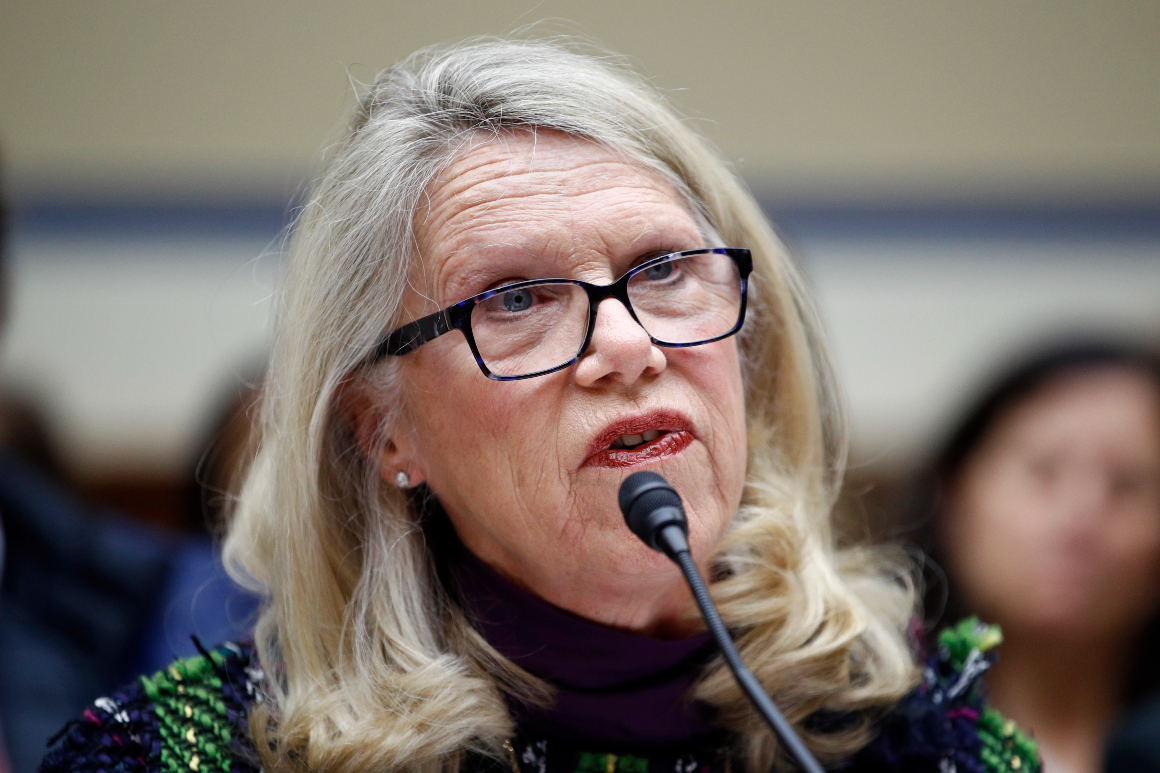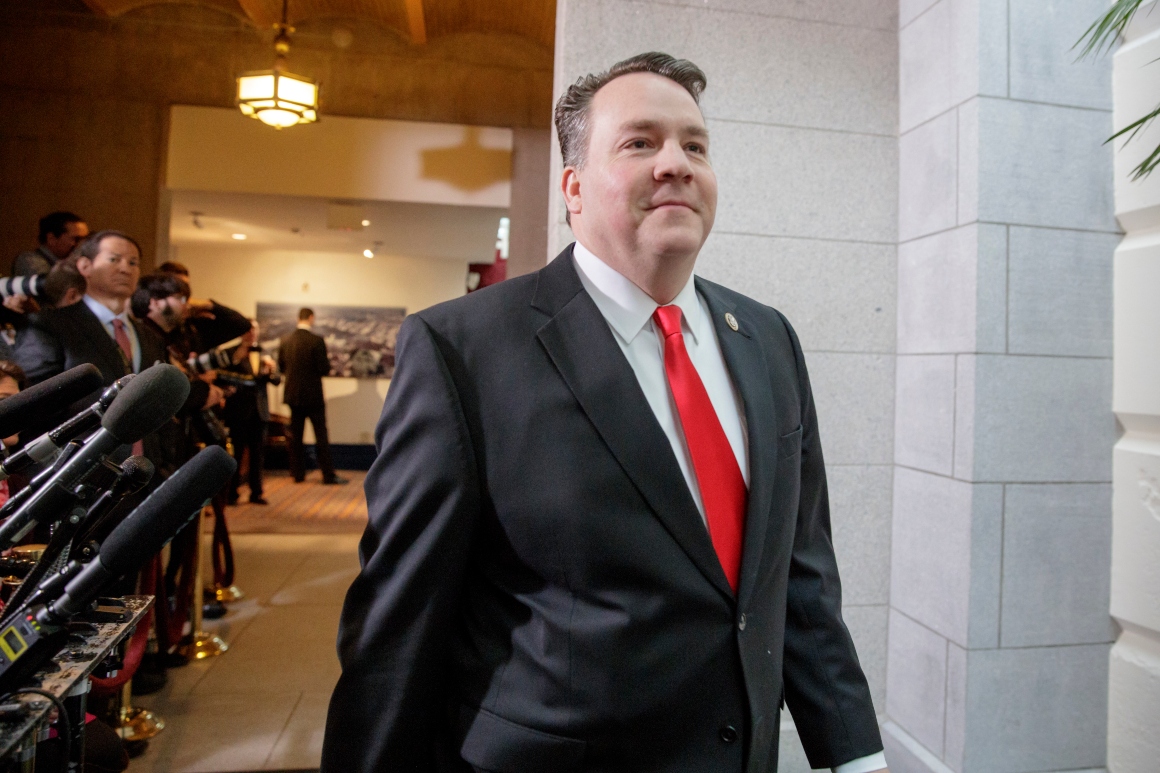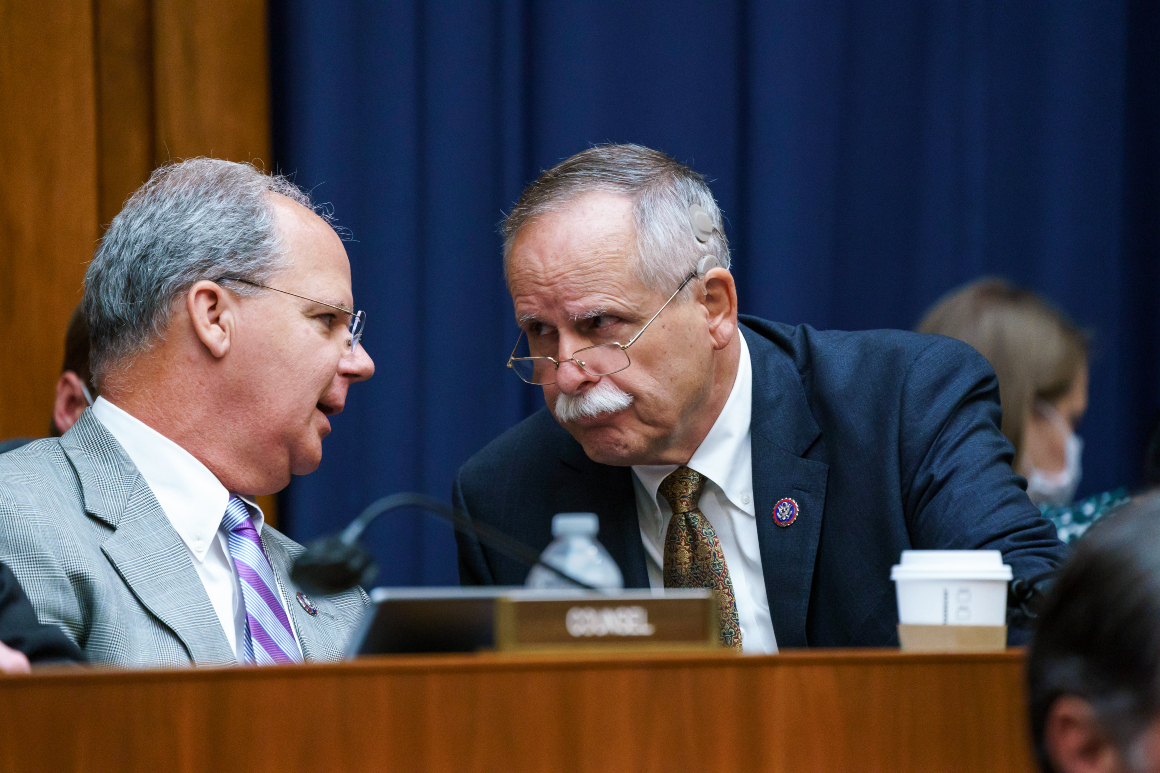
West Virginia Republicans are on the verge of a "Hunger Games"-meets-musical chairs showdown that only once-a-decade redistricting can bring: three incumbents for only two seats.
It’s an uncomfortable math problem that will lock the state’s ambitious delegation in a brutal battle for political survival when the state legislature lands on a new map in the coming days. Republican Reps. Carol Miller, David McKinley and Alex Mooney all say they are seeking reelection in 2022 — if they follow through, two of them will have to compete against each other.
All three are already making moves before legislators settle on a plan to bifurcate the state. Mooney is quietly stockpiling campaign cash. McKinley is advocating for his preferred map to power players in and out of the statehouse. And Miller, who is no stranger to negative campaigning, is ready to take on her colleagues, if necessary.
State lawmakers are feeling the squeeze — and say they don't relish their kingmaking role.
"I'm on a first-name basis, and I know all of the members in the congressional delegation," said GOP state Del. Chris Pritt. "It can become very, very awkward."
The state is currently composed of three vertically stacked districts — but because of slow population growth, it lost one of its three House seats in reapportionment. So far, state lawmakers have proposed dozens of ways to condense them. But the most likely outcome would leave Miller, who represents the southern third of the state, in a district by herself.
The state legislature met Monday for a special session to set the political boundaries. The map that advanced in the state Senate links together the northern panhandle (where McKinley lives) with the eastern panhandle (where Mooney lives). It will now go before the entire state Senate for approval.
The question now is whether the state House will adopt a similar map, or whether they will divide the state differently and force the upper chamber to negotiate. The first action there is expected this week.
A north-south split is most likely. Yet McKinley has been pushing a competing plan, which GOP sources in the state say has been gaining some traction, that would divide up the two panhandles. His reasoning: separating Morgantown, home to West Virginia University, and the eastern panhandle, which are among the fastest growth areas in the state.
"I don't think it would be beneficial if we put all growth areas in the 1st District," McKinley said in the "Talkline" podcast last month with reporter Hoppy Kercheval of WV Metro News. The southern portion of the state, McKinley noted, is declining in population and should not have its own district.
"Let's not leave the south alone," he said. "I think they need a hand up."
His interest may also be motivated by self-preservation: His preferred map likely pits Miller and Mooney against each other.
No matter how the line between the state's two remaining districts is drawn, both will almost certainly remain in Republican hands. But the political futures of the incumbents are weighing heavily on state legislators.
"When we go from three to two, no matter how you split the pie, somebody's gonna be unhappy, probably," said state Del. Steve Westfall, a GOP member on the redistricting committee.
"They're all active now," he added. "So, I don't think one's ready to step down yet."
Two incumbents will soon have to balance the prospect of a brutal member-versus-member primary with their long-term goals.
In 2024, GOP Gov. Jim Justice will be term-limited, and vulnerable Democratic Sen. Joe Manchin is up for reelection. No one wants to make any moves that could preclude a run for either of those offices.
And each would bring different baggage — and strengths — to the fight.

A former Maryland state senator, Mooney crossed over into West Virginia to run for Congress in 2014, overcoming carpetbagging attacks to win a costly and bitter primary battle. In the House, he’s probably the most conservative of the three and the only one who joined the House Freedom Caucus.
His war chest is massive. He was sitting on $2.5 million as of the end of June. (McKinley had $500,000, and Miller had just $126,000.)
Mooney is widely believed to be interested in challenging Manchin. A nasty primary with another incumbent would deplete his considerable resources and rack up his negatives. Some operatives in the state speculate that he could retire in 2022, announce a 2024 challenge against Manchin and then spend the next three years raising money and introducing himself to voters statewide.
But a spokesman for Mooney said Monday he is absolutely running for reelection — even if he has to challenge one of his colleagues.

McKinley, 74, has likely been the most vocal of three in his attempt to sway the legislature toward a specific map. He has been stepping up his fundraising efforts in recent months, according to sources close to him, a sign that he's not ready to retire.
A seventh-generation resident of Wheeling, he's highly likely to run in the district that includes the northern panhandle, which separates Pennsylvania and Ohio. But as the most centrist of the three, he also has reason to fear a contentious GOP primary. His biggest liabilities: voting to certify Joe Biden’s election in Arizona and Pennsylvania, and for an independent commission to investigate the Jan. 6 attack on the Capitol.
McKinley, first elected in 2010, has also served the longest and has deep relationships with state legislators in Charleston who might be more open to his preferred map.
“He pushed that idea of separating the growth areas, and that caught on like wildfire," said one West Virginia GOP political operative, granted anonymity to speak candidly. "I think people were already looking for a reason to reward him and not reward Alex Mooney.”
In contrast to McKinley, Mooney's roots are elsewhere. Before moving to West Virginia, Mooney served as the chair of the Maryland state GOP. His chief of staff is a Maryland state senator.
Miller, who was elected in 2018 after a dozen years in the state House, also has allies in the legislature. She sits on the powerful Ways and Means Committee and serves as the recruitment chair for the National Republican Congressional Committee, giving her additional cache in Washington.
She won a crowded open-seat primary in 2018 and is no stranger to tough races. (As a bison farmer she used "cut the bull" as her campaign slogan.) And Miller also voted against accepting presidential electors in both Pennsylvania and Arizona, which she could point to in an attempt to seek former President Donald Trump’s endorsement if paired with another incumbent. Miller doesn't plan to pull any punches against Mooney or McKinley and will leverage her pro-Trump record if needed, per a source close to her campaign.
Mooney only objected to certifying now-President Joe Biden’s Pennsylvania win — not Arizona.
"I am 100 percent running for reelection," Miller said in a statement. "My mission in Congress is to bring investment and opportunity to West Virginia, and my constituents, whatever the final lines may be, can count on the fact that I won't ever stop fighting for them."
----------------------------------------
By: Ally Mutnick
Title: 3 members, 2 seats: West Virginia Republicans gird for redistricting showdown
Sourced From: www.politico.com/news/2021/10/12/west-virginia-redistricting-showdown-515774
Published Date: Tue, 12 Oct 2021 03:30:34 EST






